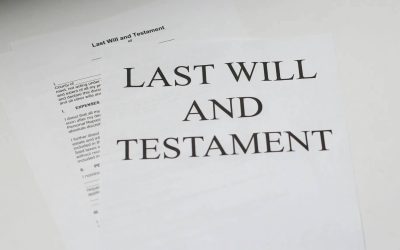Taxes in Portugal for foreigners are, for many, a dream come true. In fact, under the Non-Habitual Resident (NHR), taxes in Portugal for foreigners are considerably lower.
Those qualifying for the Non-Habitual Resident (NHR) regime qualify as residents for tax purposes in Portugal and are taxed at a reduced rate. The NHR scheme is the special Portuguese taxation regime applicable to the foreign income of natural persons. This program is specially designed for people wishing to transfer their residence to Portugal from an immigration standpoint, regardless of their nationality.
NHR status is valid for ten consecutive and non-renewable years unless the taxpayer becomes a non-resident for tax purposes for five years before reapplying to the scheme.
Overview of taxes in Portugal for Foreigners
The Tax System in Portugal for Foreigners
Some ex-pats in Portugal can take advantage of the Non-Habitual Residency (NHR) scheme, which provides substantial exemptions for ten years of residence. This special ex-pat tax status is available to all relocating to the country, regardless of nationality and where they qualify as pensioners, workers or freelancers (digital nomads).
Before relocation, one should contact a tax advisor, such as MCS and have your income structure analyzed concerning its compliance with the NHR scheme rules and exemptions.
Tax Rates In Portugal
Portugal has a progressive tax system in place, where different tax rates apply to different tax brackets. Income Tax Brackets in Portugal and the Autonomous Region of Madeira for the FY2021 Portuguese income taxes apply to earnings in the following six categories:
- A: Employment income
- B: Self-employment income
- E: Investment income
- F: Rental income from properties let in Portugal
- G: Capital gains from selling properties, assets, or shares
- H: Pensions in Portugal, including private pension plans
Special and fixed tax rates may apply to different income categories depending on specific income types, tax residency status or applicability of the NHR scheme to the taxpayer in question.
NHR Benefits
Tax Exemption on Income of Foreign source
- Taxation exemption on employment income is granted if the income is subject to taxation in the source country, per the applicable Double Taxation Agreement, or is considered not derived from a Portuguese source.
- Net Pensions are subject to a flat tax rate of 10%.
- Freelancer income / Independent Contractor derived from high value-added service activities with a scientific, artistic or technical character are also exempt if these can be taxed in the country of source, with which Portugal has a Double Taxation Agreement or, in the absence of such agreement, when the income is not to be considered obtained in Portuguese territory.
- Taxation exemption on other types of foreign-sourced income (interests, dividends, capital gains, income from immovable property (rents), royalties, intellectual property income and business income) if these can be taxed in the country of origin under a Double Taxation Agreement concluded between Portugal and the respective State or; if these types income may be taxed in the State of origin per the OECD model of tax convention (excluding tax havens) in cases where there is no Double Taxation Agreement.
According to our experience, the Portuguese Tax and Customs Authority is not correctly applying for the exemptions regarding high-added value freelancer income and applying the 10% tax rate on the net pensions (instead of applying it to the gross pensions). Given this, taxpayers are usually required to contest the tax settlement notice. According to the latest news, the Portuguese Tax and Customs Authority is looking into this matter.
Tax Exemption on Income of Portuguese Source
- Employment income and business or professional income derived from high-added-value activities are taxed at a flat rate of 20%.
- Remaining employment and business or professional income (not considered of high added value) and other types of income shall be aggregated and taxed according to the general taxation rules.
NHR Status Requirements
- Not have been deemed tax resident in Portugal in the previous five years (a tax residence certificate and proof of tax paid abroad may be required).
- Acquiring Portuguese tax residence. Either by having lived for more than 183 days (consecutive or not) in Portugal in any period of 12 months starting or ending in the relevant year; or by having a house, at any time throughout the 12 months, in such conditions that allow to presume the intention to hold and occupy it as the habitual place of residence.
- Non-EU/EEA citizens will need to obtain a valid visa from the Portuguese Embassy/Consulate of their country of residence that entitles them to have a residency permit in Portuguese territory. (e.g., a Golden Visa, a Passive Income Visa or other types of visa).
- EU/EEA citizens will need to obtain an EU/EEA Citizen Residency Certificate from the City/Town Hall with jurisdiction over their tax address.
- Apply for the registration as a Non-Habitual Tax Resident until 31 March of the year following that of registration as a resident (e.g. 2017– registration until 31 March 2018).
- Recognition of the NHR status is not automatic and requires a formal application to be lodged with the Portuguese Tax and Customs Authority. In addition, documents proving tax residency in previous years (e.g., Tax Residency Certificates and proof of tax settlement abroad) can be requested in case of a random application audit. Having such records with you at the time of application is crucial.
Our team of professionals is ready to assist you with your tax affairs should you reside in Madeira or on the Portuguese mainland.
This article is provided for general information purposes only and is not intended to be, nor should it be construed as, legal or professional advice of any kind. Should you have any questions, please do not hesitate to contact us.

Laurinda holds a Diploma in Business Administration from the South African Institute of Administration and Commerce… Read more




